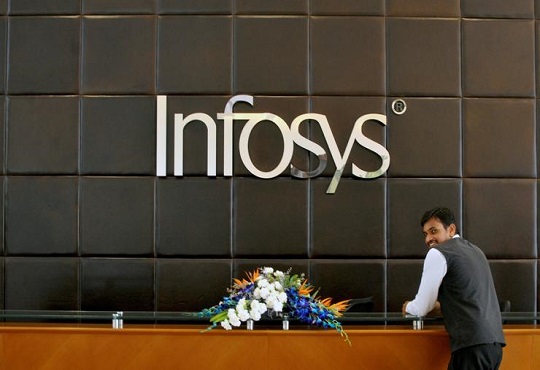Infosys applies Finacle solution for ABN AMRO's customers
CIOTechOutlook Team | Friday, 17 March 2023, 03:23 IST
 The deployment and go-live of the Infosys Finacle Liquidity Management System for the bank's corporate clients were announced today by Infosys Finacle and Netherlands-based financial services company ABN AMRO.
The deployment and go-live of the Infosys Finacle Liquidity Management System for the bank's corporate clients were announced today by Infosys Finacle and Netherlands-based financial services company ABN AMRO.
Customers of ABN AMRO will have a single point of access to better manage their international financial flows securely from any location and on any device.
"With this implementation, the bank’s customers will see transformative improvements in target balancing, notional pooling, aggregated balance agreement, and IFRS accounting. This is an important part of the bank’s transformation strategy to better serve its digitally enabled corporate clients and enhance user experience," according to Infosys' exchange filing.
The technology will give the bank the opportunity to provide customers with customised liquidity products and new product developments. According to the filing, the bank will now be able to implement a cash pooling programme to improve its corporate channel offers.
“The right technology investment for corporate banking customers is of great importance to ABN AMRO as smarter cash management is evolving as a key priority for our customers, pushing the need for driving resilience in treasury operations," said Xander van Heeringen, director of transaction banking at ABN AMRO.
Infosys announced in an exchange filing that it will release its Q4 financial results on April 13, 2023.
In the third quarter of FY23, Infosys reported a 20.2% year-over-year (YoY) increase in consolidated revenue to Rs 38,318 crore and a 13.4% YoY increase in consolidated net profit to Rs 6,586 crore.
After serving as president of Infosys for 22 years, the nation's second-largest IT company, Mohit Joshi announced his resignation last week. Joshi's resignation from Infosys follows that of Ravi Kumar, who left the business as president in October, as the second well-known employee to leave the organisation.
Analysts have identified the two senior-level departures from Infosys, the second-largest software company in India, in the past six months as a "short-term" danger to the business.
























































.jpg)
.jpg)








.jpg)

.jpg)

.jpg)
.jpg)



.jpg)


.jpg)





























.jpg)

.jpg)
.jpg)

.jpg)
.jpg)

































.jpg)

.jpg)



















.jpg)
















.jpg)












































































































